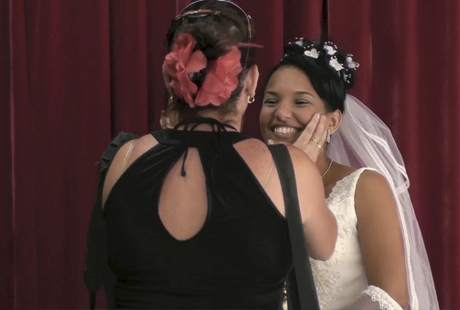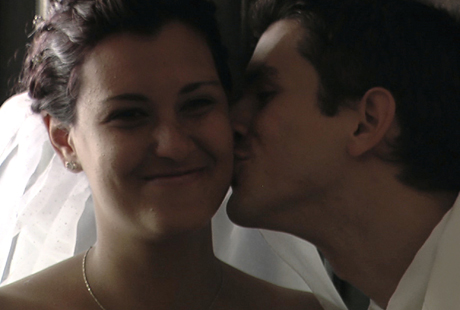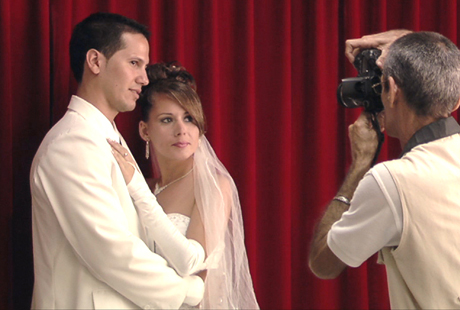Cactus & Hedgehog
Film Production Company





La caja de música
Proyecto: La caja de música
Fecha de incio: Abril 2010
Fecha de terminación: Junio 2010
Logline
Tienes que esperar.
Tienes que esperar por la chica.
Tienes que esperar por el carro.
Tienes que esperar en fila bajo el sol entre la gente, con un gran traje, para finalmente ser parte de un oxidado mecanismo y lentamente ser conducido a la salida, donde tendrás que esperar de nuevo para partir.
Pero este es tu gran día y todo el mundo quiere que sea perfecto y lucir feliz en la foto.
Equipo
Directora: Orisel Castro
Fotógrafo: York Neudel
Productora: Carmen Mendez
Sonido: Catarina Apolonio
Editor: Boris Villalaz
Premios y funciones
Premio del jurado CIBA-CILECT, Portugal
Selección 2011: Documenta Madrid; Festival Mar del Plata, Argentina; Kasseler Dokumentarfilm- und Videofest, Alemania; Festival Internacional del Nuevo Cine Latinoamericano, La Habana, Cuba; Bahía; Doc Buenos Aires; Sao Paulo; 13th Muestra Internacional Colombia; EDOC Ecuador; FENACO;
Selección 2012: Nominación en FENAVID, Santa Cruz, Bolivia
Crítica y Reseña
Musicbox takes place on a single day in the lives of twenty-one couples facing four official registrars and a phalanx of five professional photographers. The crew are simply observers among the throng of family and friends in the heat of waiting. Castro and Neudel give us a perspective from their position on the side of the event as couples arrive, primp, affirm their vows then exit the Marriage Palace in Havana.The only music we hear on the sound track is the intermittent chiming of a wind up music box. The irony of a mechanical, repetitious accompaniment during a significant milestone in social life is present, yet understated. The couples about to be married are directed to sit and stand in certain ways, even to place their hands together before the magistrate in the one right manner.
Each movement of the couples seems orchestrated by the State or dictated by rigid custom. Yet we know that young couples are unlikely to be so constrained. The video lets the viewers engage by inner dialog about what is “normal” in Havana and what is truly extraordinary about this day in this place.
Music Box is a very good video for instructors to raise questions about observing nuance and letting a scene play out for the audience to find their own conclusions. We get to see twenty-one couples in various stages of the brief ceremony, but we don’t get insight into their personal motivations. We get many close-ups of brides and grooms staring intently at something, but we don’t see what they are looking at. We can tell that the film crew is blending into the scenery, but we don’t get to see them onscreen. The video shows marriage processing, but we don’t get a sense of the motivation of individuals. We are in a building looking out to a street, but never in the street looking at the context of the building in the city.
Every aspect of the video from the photography to the flowing story line is in a tight frame like an observer intently focused on the task at hand. The broader context is left to the imagination of the audience. We are intrigued by what is not articulated. No doubt the audience of this video will think about their own filmmaking or their own marriage or their own deep breaths while jumping through bureaucratic hoops. Just as in the observations of a passer-by, we don’t get privileged information about what is going through the minds of the participants. There is no voice over narrative to contain our assumptions. Yet there is a clear choice by the editors of a progressing force.


